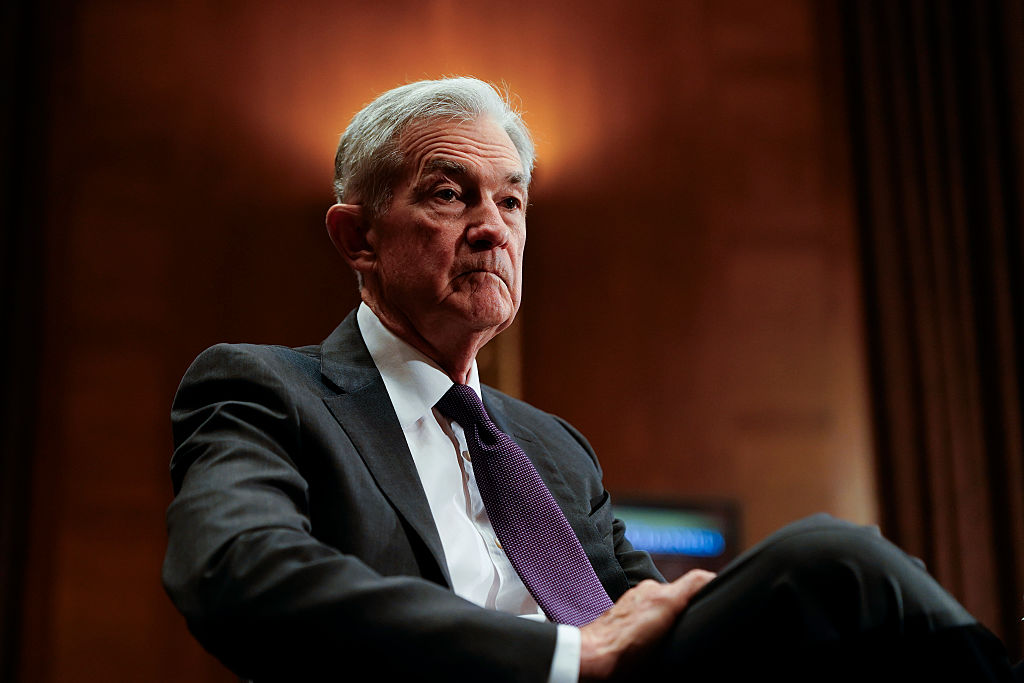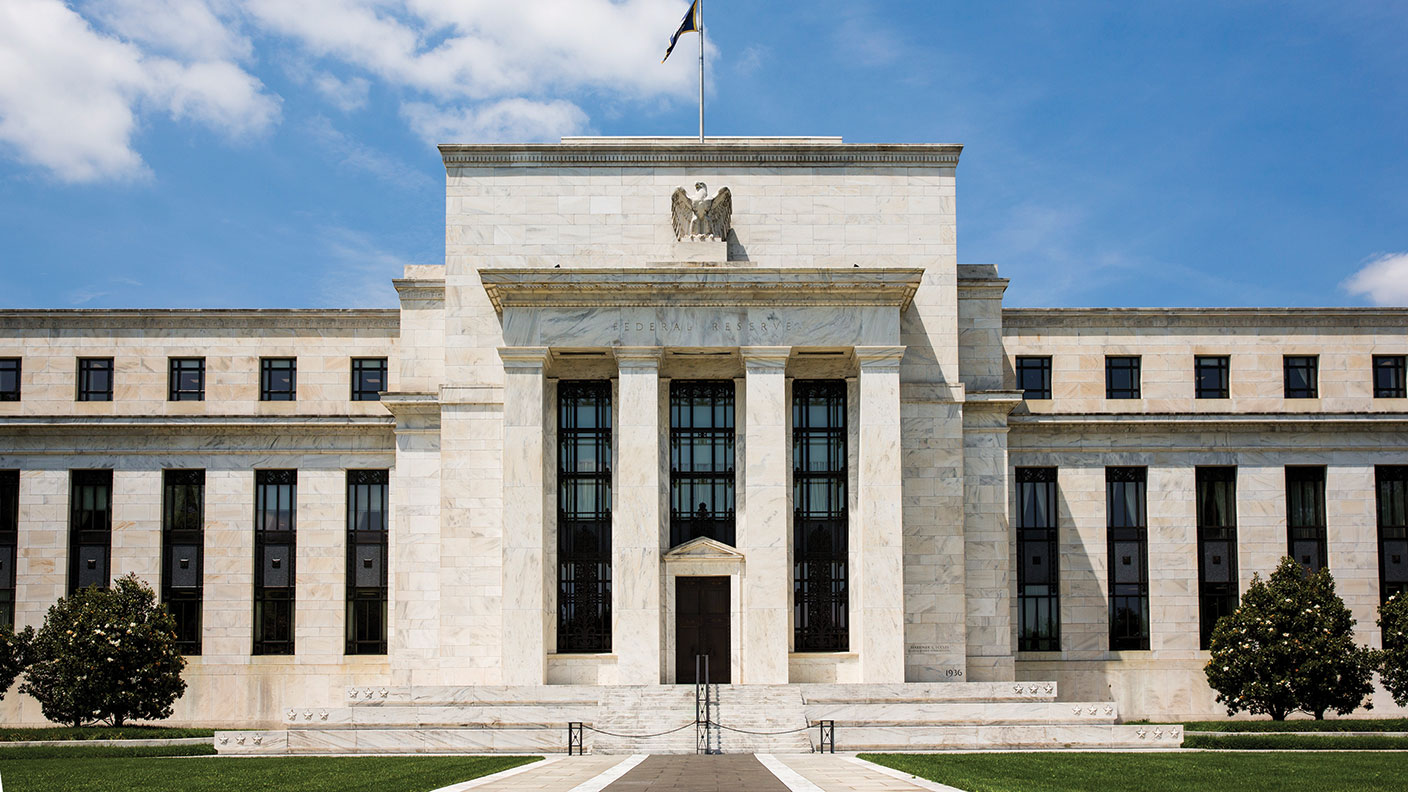Inflation isn’t transitory – but what does that mean for markets?
With US inflation at its highest for 13 years and prices rising fast around the world, markets have come to realise that this is no longer “transitory”. John Stepek looks at what that means for your money.


Get the latest financial news, insights and expert analysis from our award-winning MoneyWeek team, to help you understand what really matters when it comes to your finances.
You are now subscribed
Your newsletter sign-up was successful
Want to add more newsletters?

Twice daily
MoneyWeek
Get the latest financial news, insights and expert analysis from our award-winning MoneyWeek team, to help you understand what really matters when it comes to your finances.

Four times a week
Look After My Bills
Sign up to our free money-saving newsletter, filled with the latest news and expert advice to help you find the best tips and deals for managing your bills. Start saving today!
US consumer price inflation hit an annual rate of 5.4% yesterday. That’s a big number.
Meanwhile, “core” inflation – taking out food and energy – is still sitting at 4%.
It’s not the highest it’s been this year, but it’s certainly well above the Federal Reserve’s target of 2%-ish.
MoneyWeek
Subscribe to MoneyWeek today and get your first six magazine issues absolutely FREE

Sign up to Money Morning
Don't miss the latest investment and personal finances news, market analysis, plus money-saving tips with our free twice-daily newsletter
Don't miss the latest investment and personal finances news, market analysis, plus money-saving tips with our free twice-daily newsletter
Looks like that comforting “transitory” explanation is on its last legs.
We’re not in the 1970s yet. But there’s plenty more inflation to come
As John Authers puts it on Bloomberg, “there’s no longer any sensible way to dismiss this inflation episode as merely transitory.” Even if you get rid of “volatile” stuff like energy, food, housing and used vehicles (yes, I imagine you too may be wondering by this point what’s left), inflation is still above 3%, which is its highest level in 28 years, says Authers.
We are by no means at or even approaching 1970s levels yet, he adds – if you take inflation over two years rather than one, it looks less alarming, though still anything but transitory.
However, you then have to wonder about what’s coming next – this is all happening at a time when labour markets around the world are extremely tight. In fact, we haven’t really seen anything like this before.
In the UK, for example, the data seems to show that we not only have record job vacancies – we’re already at a stage where more people are in work than had jobs before the pandemic broke out. That seems extraordinary and I’d certainly be very interested to see how that all adds up (is it a shift from self-employed to PAYE? Something to do with furlough distorting the stats? A shrinking of the black/grey economy?).
But even if the figures are being warped by the weirdness of the overall situation, one thing is very clear – whether you’re in the US or the UK or anywhere else – workers are in short supply, and that means higher wages.
Meanwhile, winter is coming and energy and fuel prices are high. That’s a form of inflation that workers are particularly sensitive to, and that spells more pressure on wages.
Oh and by the way, this morning we learned that Chinese producer prices are up 10.7% year on year, the highest level in 25 years. So there’s plenty more where this came from.
Markets are starting to believe that this is not a passing phase
The market reaction yesterday was interesting. At first, gold did its usual recent trick of wilting. Then it moved sharply higher. It’s been a while since gold had a significant “win” for the day, so this was notable.
Why? Well, this level of inflation suggests that the Federal Reserve, America’s central bank, has no choice but to start tapering. In other words, the Fed will be tightening monetary policy imminently.
Tighter money means higher interest rates which would normally be bad news for precious metals (not to mention the Nasdaq, which is highly interest-rate sensitive). And yet, gold went up. What gives?
Well, as we’ve mentioned a few times before, the reason that gold tends to do well in inflationary times is not because of inflation as such, it’s because when inflation goes up, “real” interest rates (that is, interest rates adjusted for inflation) go down. Gold historically does well when real interest rates are falling.
If inflation goes up faster than interest rates, that spells falling real interest rates (even if nominal rates are rising). That in turn is good for gold. So overall, this move implies that the market is starting to wake up to the idea that the Fed is going to end up “behind the curve”. In other words, whatever happens with interest rates, they will lag the pace of inflation – at least, until inflation really starts to bite.
If gold and silver start to make a decent comeback, then we could well see the precious metals miners starting to recover some of their poise too. The sector as a whole has fallen sharply from its highs of August last year – indeed it’s in a bear market.
But that means that if this is a genuine recovery and the beginning of an inflationary cycle, then there’s solid scope for a rally. On that front, there are a fair few active funds which invest in gold miners. One straightforward passive play is the VanEck Vectors Gold Miners ETF (LSE: GDX) which tracks the major gold miners.
There are several other interesting points to pick out from yesterday’s market reaction. Emerging markets liked it too. The implication is that investors see emerging markets as somewhere to take shelter from a weaker dollar.
It’s not a great idea to view emerging markets as just one big bucket – Turkey is clearly very different to Vietnam, for example (and, technically, Vietnam isn’t even an emerging market, it’s a frontier one, but let’s park that for now).
However, for the sake of simplicity, there are two “big picture” factors about the emerging market sphere in general that might make it appealing in a more inflationary post-Covid world.
One is that (broadly speaking) their public and private finances are in better shape than those of most developed economies. That means that they can raise interest rates without worrying about bankrupting themselves.
Secondly, they have long memories of crises caused by “hot” money fleeing their shores, and so they will also be inclined to raise interest rates to maintain currency stability against the dollar. We’ve already seen rate rises in several emerging markets.
All of this implies that asset allocations for most of us might need to shift significantly to cope with the new era that we might be moving into. Fewer bonds and US tech stocks, more precious metals and emerging markets?
This is something we’ll be devoting more time to in upcoming issues of MoneyWeek magazine. And of course, we will be discussing inflation and its impact on your portfolio at the MoneyWeek Wealth Summit next month. Book your ticket now if you haven’t already done so – the early bird discount ends on Monday.
Get the latest financial news, insights and expert analysis from our award-winning MoneyWeek team, to help you understand what really matters when it comes to your finances.

-
 Should you buy an active ETF?
Should you buy an active ETF?ETFs are often mischaracterised as passive products, but they can be a convenient way to add active management to your portfolio
-
 Power up your pension before 5 April – easy ways to save before the tax year end
Power up your pension before 5 April – easy ways to save before the tax year endWith the end of the tax year looming, pension savers currently have a window to review and maximise what’s going into their retirement funds – we look at how
-
 How a dovish Federal Reserve could affect you
How a dovish Federal Reserve could affect youTrump’s pick for the US Federal Reserve is not so much of a yes-man as his rival, but interest rates will still come down quickly, says Cris Sholto Heaton
-
 New Federal Reserve chair Kevin Warsh has his work cut out
New Federal Reserve chair Kevin Warsh has his work cut outOpinion Kevin Warsh must make it clear that he, not Trump, is in charge at the Fed. If he doesn't, the US dollar and Treasury bills sell-off will start all over again
-
 'Investors should brace for Trump’s great inflation'
'Investors should brace for Trump’s great inflation'Opinion Donald Trump's actions against Federal Reserve chair Jerome Powell will likely stoke rising prices. Investors should prepare for the worst, says Matthew Lynn
-
 'Governments are launching an assault on the independence of central banks'
'Governments are launching an assault on the independence of central banks'Opinion Say goodbye to the era of central bank orthodoxy and hello to the new era of central bank dependency, says Jeremy McKeown
-
 Will Donald Trump sack Jerome Powell, the Federal Reserve chief?
Will Donald Trump sack Jerome Powell, the Federal Reserve chief?It seems clear that Trump would like to sack Jerome Powell if he could only find a constitutional cause. Why, and what would it mean for financial markets?
-
 Do we need central banks, or is it time to privatise money?
Do we need central banks, or is it time to privatise money?Analysis Free banking is one alternative to central banks, but would switching to a radical new system be worth the risk?
-
 Will turmoil in the Middle East trigger inflation?
Will turmoil in the Middle East trigger inflation?The risk of an escalating Middle East crisis continues to rise. Markets appear to be dismissing the prospect. Here's how investors can protect themselves.
-
 Federal Reserve cuts US interest rates for the first time in more than four years
Federal Reserve cuts US interest rates for the first time in more than four yearsPolicymakers at the US central bank also suggested rates would be cut further before the year is out